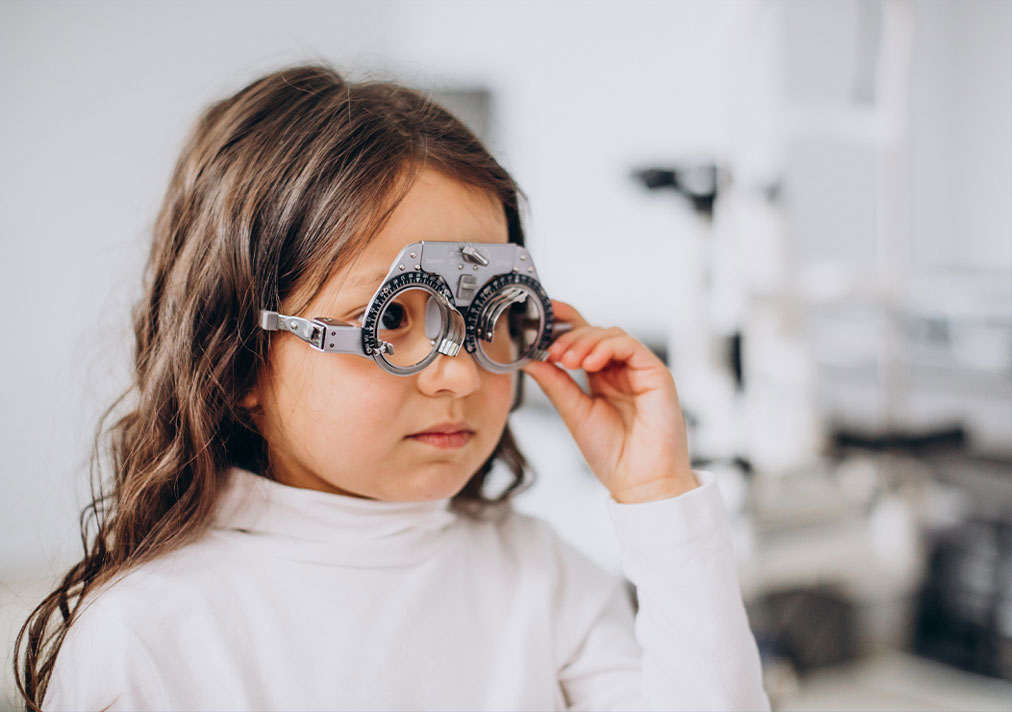Summer brings sunshine and heat and for many people—eye allergy occurs. The increase exposure to pollen, dust, mould, and pollution for the duration of this season often triggers allergies that affect eye health. If you’re facing itchy, red, watery eyes, it’s essential to know the way to identify those allergens early and get the right treatment before they get worse. The group of skilled professionals at best eye medical institute is right here to help you follow proper Eye Care tips and protects your eye from summer allergies.
What Are Eye Allergies?
Eye allergies, or allergic conjunctivitis, arise whilst the eyes react to allergens like pollen, puppy dander, mildew, or dust mites. These allergens cause an immune response, led to inflammation and pain. While not usually dangerous, eye allergies can appreciably disrupt your every day life, specifically during the summer time months while allergens are more familiar in the air.
How Do Summer Allergies Impact Eye Health?
General Allergies in the eye, also called allergic conjunctivitis, are generally a result of something referred to as an allergen. When allergens in the surroundings are available in contact with antibodies, they are attached to cells in the eyes. These cells then release histamine that results in blood vessels leaking.
The histamine that’s release causes your eyelids and conjunctiva, that is the mucous membrane protecting the front of the eye and in the eyelids. It led to red, swollen, burning, sensitive, and itchy eyes and symptoms, together with an itchy, stuffy, and runny nose.
Some of the common triggers of eye allergies consists outside allergens, indoor allergens, and irritants. Outdoor allergens include pollens, timber, grasses, and weeds. Indoor allergens consist of pet dander, dust, and mold. Irritants consist of cigarette smoke, diesel exhaust, and perfume.
Recognizing The Symptoms Of Eye Allergies
Eye allergies are frequently mistaken for dry eye syndrome, as each can cause comparable discomfort. However, allergic reactions are commonly followed by other symptoms like sneezing, nasal congestion, or sinus pressure. Common eye allergy symptoms consist of
- Persistent itching and irritation
- Redness and swelling of the eyes and eyelids
- Watery eyes
- Light sensitivity
- Blurry vision caused by high tearing or swelling
If you wear contact lenses, the summer season can be particularly tough. Pollen and different airborne particles can keep on with lenses, prolonging discomfort and growing the urge to rub your eyes—which only makes signs worse.
Common Eye Allergy Triggers in Summer
If you’re experiencing allergic reactions, it’s important to identify the allergen or something that triggers allergies, including indoors or outdoors.
-
Indoor Allergy Triggers
Dust mites, pet dander, and mold are the pinnacle indoor triggers. These allergens can cause ongoing symptoms in the year. These are also called perennial allergens. Washing your hands, applying artificial tears, and deep cleansing your home can help when eliminating irritating allergens.
-
Outdoor Allergy Triggers
Outdoor allergy triggers are usually lingering in the outdoor air. If your eyes appear to get red and swollen whilst you go outdoors in the course of the spring or summer months, you are experiencing seasonal allergic conjunctivitis. It is recommended to stay indoors, keep your house windows closed, and run the air conditioner while the pollen level is high.
Mold spores are also recognized to trigger allergic reactions. This allergen is activated through damp to wet weather. It is recommended to stay indoors as spores are likely to be in the air.
If you’re allergic to something, your body releases a chemical called histamine. Histamine causes blood vessels to swell and become red, as well as causing itchiness and wateriness to the eyes.
Who Is At Risk For Eye Allergies?
There are two types of allergic conjunctivitis: acute and chronic. Acute eye allergies are a short-term condition, normally performed for the duration of “seasonal allergies.” For the majority of human beings with seasonal allergic reactions, summer is taken into consideration as allergy season. The pollen from blooming plants and plant life are reasons for allergic reactions.
Chronic allergic conjunctivitis is described as eye allergies that occur year-round. Allergies to dirt and dander, commercial pollutants, or food allergy reactions may be the cause.
How To Relieve Summer Eye Allergy And Reduce Irritation
If you’re experiencing the symptoms of eye allergies, seek advice from your doctor or eye expert to decide what the cause is. Once you know the cause, you understand whether it will be treated itself or you need medical attention. Here are some tips to follow to get relief from summer allergies and reduce irritation.
- Try a Cold Compress
Using a cold compress is the fastest way to achieve transient treatment for eye allergic symptoms. Place the compress in your closed eyes and go away for about 10 minutes. Do not rub. Repeat as often a day as required. To stay away from the risk of releasing more allergens or bacteria on your eyes, wash your hands and use an easy fabric for each application.
- Apply Artificial Tears
Over-the-counter eye drops, supposed to lubricate the eyes, can help wash allergens away. Did you already know that you need to keep types of eye drops at room temperature?
Gel solutions may also freeze or become too thick to squeeze out of the bottle whilst chilled, but refrigerating liquid drops is an extraordinary concept. It is not only effective in increasing the life of the medication, but the cooling sensation of chilled drops may also carry instant alleviation to itchy, burning eyes.
- Keep Indoor Air Clean
Reducing your exposure to allergens indoors is vital. Use high-efficiency particulate air (HEPA) filters in your home to entice pollen and dirt mites. Regularly clean your living areas, and do not forget to use a dehumidifier to hold mold at bay. Investing in the best air cleanser can help do away with allergens from the air, providing cleaner indoor air.
Regular cleaning, which includes dusting and vacuuming often and washing bedding in hot water, enables the elimination of dust mites. Instead of using ceiling or floor fans, choose an air con to keep away from stirring up allergens.
- Limit Outdoor Exposure
Pollen counts are typically high in the early morning and late afternoon. Plan outside activities for times when pollen stages are less, generally in the late morning or after rain. Check pollen forecasts by using weather apps to monitor counts and plan your activities as a result.
Wearing sunglasses can help block pollen from moving into your eyes, providing a physical barrier against allergens. After spending time out of doors, showering can help do away with pollen out of your hair and skin, reducing the amount you bring indoors.
- Maintain Good Eye Hygiene
Practicing correct eye hygiene can prevent allergens from worsening your signs. Avoid rubbing your eyes, as this can spread allergens and increase irritation. Always wash your hands before touching your face or eyes to reduce the risk of shifting allergens.
Applying a cold compress can reduce swelling and provide soothing relief, and minimizing the use of eye makeup that can trap allergens also can help.
- Stay Hydrated
Drinking lots of water allows you to keep your eyes moist and flush out allergens. Dehydration can cause worse symptoms like dryness and irritation. Aim for a minimum of 8 glasses of water an afternoon, and try and limit caffeine and alcohol, as these can dehydrate you and exacerbate allergy symptoms.
- Use Allergy Eye Drops
Over-the-counter allergy eye drops can provide short relief from redness, itching, and inflammation caused by seasonal allergic reactions. Look for antihistamine or mast cell stabilizer eye drops, which could assist lessen irritation and alleviate symptoms. However, seek advice from your eye care professional before taking any new medicinal drug.
- Use Honey
Some people consider that consuming locally sourced honey may also assist build immunity to pollen allergies. While medical evidence is limited, the principle is that consuming small amounts of local pollen by honey may also help your body adapt to allergies over the years. Remember that this treatment will not work for everybody, and you need to not get medical recommendations or treatments.
- Stress Management
Stress can weaken the immune system and cause worse allergy symptoms. Practicing stress-relieving strategies consisting of meditation, yoga, going out, and experiencing nature should probably lessen the severity of eye allergy signs.
- Seek Professional Help
If Allergies in the eye persist regardless of home remedies, it’s vital to seek expert assistance. Visit Eye-Q EYE Hospital for comprehensive eye testing and a personalized remedy plan tailor-made to your needs. The experienced eye care experts will perform Eye Check-ups, diagnose the cause of your eye allergy, and recommend suitable remedies to alleviate your symptoms.
When To See A Doctor At Eye-Q Eye Care Hospital
If OTC solutions don’t help or your signs worsen, it’s time to schedule an eye physician appointment. Prolonged allergies can cause headaches like keratitis (inflammation of the cornea) or persistent dry eye.
At Eye-Q Eye Care Hospital, our team includes a number of the best ophthalmologists and eye care professionals. We provide complete reviews, superior diagnostic tools, and modern tools designed for long-term treatment.
Conclusion
Don’t permit seasonal allergic reactions to dampen your enjoyment of the summer season. With the right strategies in the area, you can easily manage allergy-related eye irritation and embrace the beauty of the season with clear, safe vision. Trust Eye-Q Eye Hospital to perform Eye Check-ups and get professional care for all of your eye health needs.




